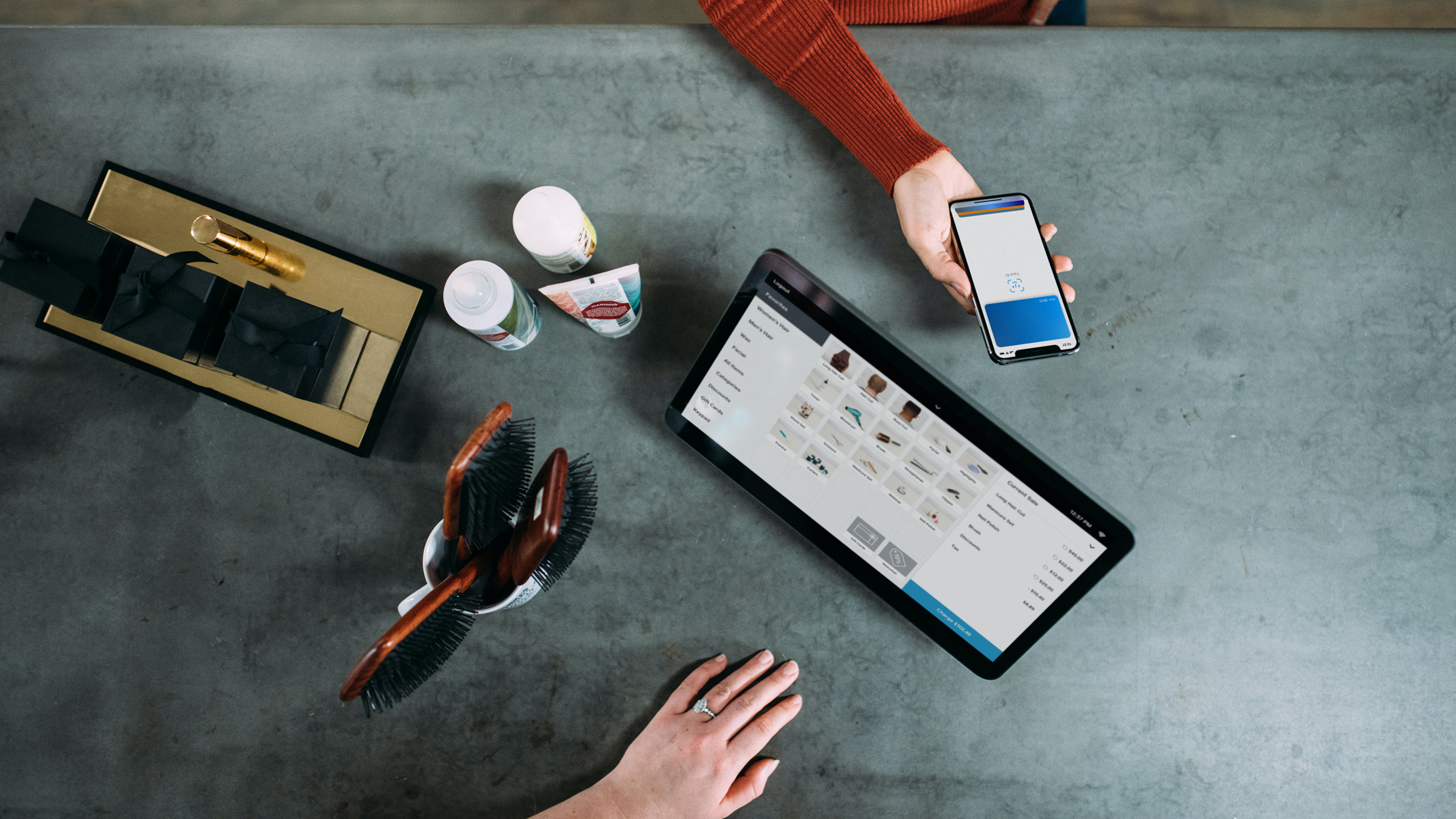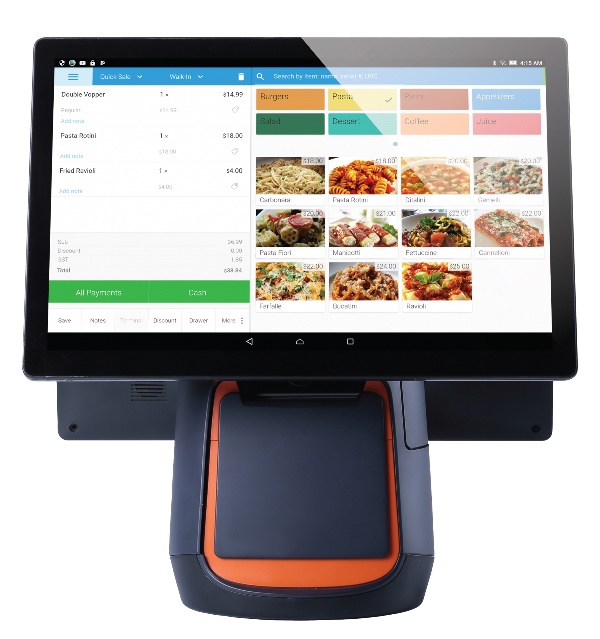5 must-have features in Restaurant POS Software apps for fast-paced restaurants
Discovering the All Regarding POS System: Advantages and Functionality Clarified

Comprehending the Basics of POS Solutions
Although several businesses count on cash money registers, Point of Sale (POS) systems have become necessary tools for modern-day retail and service environments. A POS system functions as the central hub for transactions, integrating equipment and software program to manage sales processes efficiently. It permits organizations to refine client repayments, track inventory, and generate sales records, thereby improving operations.The functionality of POS systems expands beyond straightforward cash money deals. They assist in numerous payment techniques, including credit history and debit cards, mobile payments, and contactless purchases. Additionally, modern-day POS systems usually include consumer connection management (CRM) attributes, allowing businesses to track customer preferences and acquisition histories.As companies advance, the convenience and versatility of POS systems have made them indispensable. They sustain various markets, from retail shops to dining establishments, helping boost consumer experiences while enhancing operational performance. Understanding the fundamentals of POS systems is essential for companies intending to grow in a competitive market.
Key Functions of Modern POS Systems
Modern POS systems provide a series of important attributes that enhance service procedures. Key elements include robust supply management abilities, diverse repayment processing options, and an user-friendly interface style. These features collectively add to improved performance and consumer satisfaction in retail and solution atmospheres.
Inventory Monitoring Capabilities

Effective stock administration stands as a cornerstone of successful retail operations, and modern POS systems are furnished with sophisticated features to enhance this process. These systems offer real-time tracking of supply degrees, allowing merchants to keep an eye on supply efficiently. Automatic reordering signals assistance prevent stockouts, ensuring preferred items remain available for consumers. In addition, POS systems often consist of in-depth reporting devices, enabling companies to assess sales patterns and maximize item selections accordingly. Barcoding and scanning capacities assist in precise and quick inventory matters, lowering human error. Assimilation with e-commerce systems allows seamless inventory updates throughout numerous sales channels. Because of this, businesses can accomplish improved precision, decrease excess supply, and improve total operational effectiveness, ultimately driving profitability.
Settlement Processing Options
Exactly how do settlement handling choices boost the functionality of a POS system? Modern POS systems use a varied variety of payment processing choices, considerably enhancing their functional effectiveness. These systems generally support numerous settlement techniques, including credit scores and debit cards, mobile budgets, and contactless settlements, catering to varied consumer choices. By streamlining deals, they lower waiting times and improve consumer complete satisfaction. In addition, assimilation with numerous payment gateways permits protected repayment processing, guaranteeing the security of sensitive customer data. The capacity to manage refunds and returns seamlessly additionally adds to an extra all natural consumer experience. On the whole, functional payment processing alternatives not just assist in smoother deals yet likewise add to better financial administration for businesses.
User-Friendly Interface Design

Advantages of Executing an All-in-One POS System
Implementing an all-in-one POS system provides considerable benefits for businesses seeking streamlined procedures and boosted efficiency. By integrating different functions right into a solitary system, companies can boost their sales tracking capabilities, causing much better data management and insights. This loan consolidation not just simplifies processes however likewise fosters a more cohesive operational atmosphere.
Streamlined Workflow Effectiveness
An all-in-one POS system significantly improves operational effectiveness for businesses of all dimensions. By integrating various features into a single platform, these systems reduce the need for numerous devices, decreasing the complexity of daily procedures. With streamlined supply monitoring, employee scheduling, and consumer partnership monitoring, services can save time and resources. In addition, automated processes lower the probability of human error, leading to even more precise purchases and enhanced solution delivery. Improved data accessibility warranties that personnel can rapidly recover info, helping with quicker analytic and decision-making. Generally, applying an all-in-one POS system not only streamlines operations but additionally permits organizations to focus extra on calculated initiatives, ultimately enhancing efficiency and functional effectiveness.
Boosted Sales Tracking

Enhancing Consumer Experience With POS Innovation
As companies progressively adopt innovative POS innovation, they find themselves far better equipped to boost client experiences. Modern POS systems facilitate faster purchases, lowering wait times and enhancing service efficiency. Consumers appreciate fast checkouts, which can cause enhanced fulfillment and loyalty.Moreover, POS systems typically integrate consumer partnership administration features, allowing businesses to individualize interactions based upon acquisition history and choices. This tailored approach cultivates a sense of connection and importance, encouraging repeat visits.Additionally, lots of POS platforms supply mobile abilities, permitting personnel to aid consumers on the sales floor, further enhancing the purchasing experience. With real-time access to item information and stock degrees, employees can immediately address client questions, guaranteeing a educated and responsive service.Ultimately, by leveraging the abilities of POS technology, organizations can create a much more engaging and efficient purchasing setting, significantly boosting the general customer experience.
Enhancing Supply Monitoring With POS Solutions
Modern POS systems not only boost customer experiences however likewise play an essential duty in streamlining stock monitoring (Restaurant POS Software). By incorporating real-time information monitoring, these systems make it possible for companies to check supply degrees easily. As things are marketed, the stock instantly updates, lowering the opportunities of overstocking or stockouts. This real-time presence allows managers to make enlightened decisions pertaining to reordering and sales forecasting.Moreover, POS solutions typically include functions such as automated notifies for low stock levels, aiding organizations keep suitable supply levels. This aggressive technique reduces waste and maximizes performance. Furthermore, the thorough coverage abilities of contemporary POS systems offer understandings into sales patterns, allowing companies to adjust their stock based upon customer choices. Eventually, incorporating a POS option fosters a more responsive and orderly inventory administration procedure, which is important for functional success and customer contentment
Picking the Right POS System for Your Organization
Choosing the perfect POS system can greatly affect a business's functional effectiveness and consumer interaction. To make an enlightened choice, services should analyze their particular requirements, consisting of transaction quantity, sorts of items sold, and client choices. Scalability is important; a system needs to website accommodate future growth without calling for a complete overhaul.Additionally, user-friendliness is essential, as team will require to browse the system seamlessly. Combination capacities with existing software, such as accountancy and stock monitoring systems, need to likewise be taken into consideration to improve operations.Cost is another significant variable; businesses have to stabilize in advance financial investment with recurring costs. Support and training solutions from the company can improve the system's value.Lastly, checking out consumer reviews and industry suggestions can supply insights into the reliability and performance of various POS systems, aiding in the selection procedure and ensuring that the picked system aligns with business's long-lasting goals.
Frequently Asked Questions
Just how much Does a POS System Usually Expense?
The price of a POS system varies considerably, typically ranging from a couple of hundred to several thousand dollars. Factors affecting pricing include software functions, equipment demands, and additional services such as installment and customer assistance.
Can POS Systems Integrate With Existing Software?
POS systems can integrate with numerous existing software, enabling businesses to enhance procedures. This ability improves performance by synchronizing sales information, supply monitoring, and customer relationship tools, eventually giving a more natural operational framework.
What Sorts Of Organizations Benefit A Lot Of From POS Equipments?
Numerous companies profit significantly from POS systems, especially stores, dining establishments, and company - Restaurant POS Software. These systems enhance purchases, boost supply monitoring, and enhance consumer communications, inevitably leading to increased efficiency and productivity in their procedures
How Safe Is Client Information in a POS System?
The safety of client information in a POS system varies by service provider. Numerous make use of security, safe and secure web servers, and conformity with market requirements to safeguard sensitive information, yet susceptabilities can still exist, necessitating recurring caution from organizations.
What Is the Typical Life Expectancy of a POS System?
The average life-span of a POS system typically varies from 5 to 7 years. Aspects influencing durability include technological developments, software application updates, maintenance, and the details demands of business making use of the system. It enables companies to refine client payments, track supply, and create sales reports, therefore improving operations.The functionality of POS systems expands beyond simple money transactions. In addition, contemporary POS systems commonly include client relationship monitoring (CRM) features, making it possible for services to track consumer preferences and acquisition histories.As businesses develop, click here the flexibility and flexibility of POS systems have made them crucial. While a robust settlement handling system is essential, an user-friendly interface design is equally essential for the performance of a POS system. Customers appreciate fast check outs, which can lead to enhanced complete satisfaction and loyalty.Moreover, POS systems often integrate customer connection administration attributes, enabling businesses to customize interactions based on purchase history and preferences. Scalability is important; a system must fit future development without calling for a full overhaul.Additionally, user-friendliness is important, as personnel will require to navigate the system effortlessly.